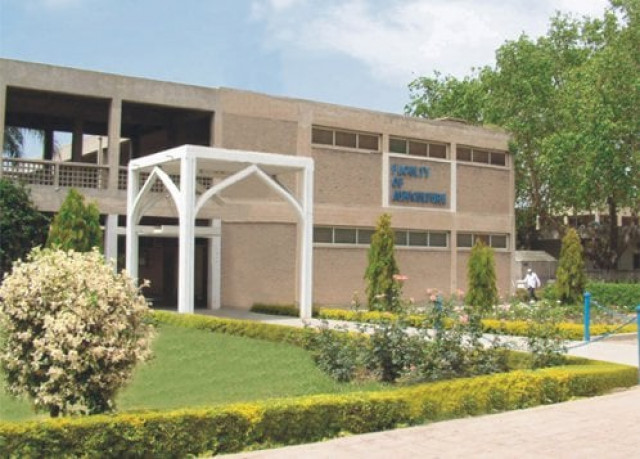Alarming situation: Forests crucial in regulating climate, says UAF VC
Says immediate steps should be taken to avert natural calamities

On November 7, prize distribution of agriculture exhibition will be arranged at Expo Centre at 5:00 pm
PHOTO: ONLINE
This was said by University of Agriculture Faisalabad Vice-Chancellor Prof Dr Iqrar Ahmad Khan. He was speaking to the foreign delegation who visited the UAF’s department of forestry on Sunday.
Dr. Iqrar said, “At present the forest net in the country is only 2% as compared to the international standards of 25%.”
He added, “If we did not take measures to raise the forest net in the country, we will have to pay a heavy price and it would be disaster for the national economy.”
The vice-chancellor further said instead of increasing the forest net, it was decreasing with each passing day, while the agencies concerned were not taking appropriate steps to overcome the alarming situation.
He called for taking concrete steps to control deforestation with enhanced awareness and collective efforts on the part of the stakeholders in order to avert natural calamities.
Iqrar Khan expressed concern and dismay over the increasing population and conversion of fertile agriculture land into residential colonies. He said the situation should be controlled in a manageable way. He maintained the UAF had mapped out a plan to produce skilled manpower and provide training to forestry practitioners.
Meanwhile, Forest Department Chairperson Dr Tahir Siddique said, “Trees are essential for a healthy environment and better life.” He called for increasing the forest net in the country.
The backdrop
Unfortunately, Pakistan’s land mass has the lowest cover of forests in the region. According to the FAO (the UN’s Food and Agricultural Organisation), Pakistan has a forest area of just 2.2% (1.687 m ha) of which only 20.2% (340k ha) is primary forest. Pakistan is also losing what remains of its forests at the rate of 42,000 ha per year (1.66%).
Again, according to the FAO, Pakistan has already lost 840,000 ha or 33.2% of its forest cover between 1990 and 2010. The reality is that our forests are shrinking. Even our dense mangrove forests are depleting on the coast — in 1965 we had 400,000+ ha and by 2000 we were down to about 176,000 or 154,000 ha.
With the support of community-based organisations and NGOs, many forest communities in the north are gradually becoming aware of the importance of saving their precious natural resources.
On the coast, communities are planting mangrove saplings and re-growing these precious forests that protect the coast from storms and provide a rich breeding ground for shrimp, crabs and other fish.
There is also another way to reverse deforestation with international support. Pakistan has signed the UN’s REDD+ (Reducing Emissions from Deforestation and Forest Degradation with the added component of carbon enhancing) mechanism that was agreed upon at the UN Climate Change Conference in Cancun in 2010.
The Intergovernmental Panel on Climate Change says that deforestation contributes to 20% of green house gases that cause climate change.
Published in The Express Tribune, November 22nd, 2016.



















COMMENTS
Comments are moderated and generally will be posted if they are on-topic and not abusive.
For more information, please see our Comments FAQ